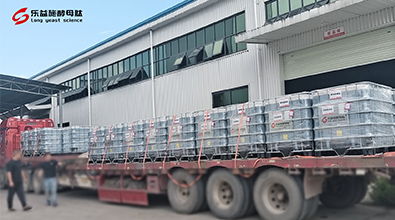How Bioactive Peptides Enhance Root Growth and Stress Tolerance?
Bioactive peptides are emerging as one of the most promising tools in sustainable agriculture, offering powerful benefits for root development, nutrient uptake, and stress tolerance. These small protein fragments—typically 2–20 amino acids—act as precise signaling molecules that regulate plant growth and adaptation. As climate challenges intensify, bioactive peptides are becoming key drivers of sustainable crop production and advanced plant breeding.
Recent studies show that bioactive peptides can significantly stimulate root meristem activity, enhance cell division, and strengthen the plant’s natural stress response systems. Their dual action—promoting growth while improving tolerance to drought, salinity, and nutrient deficiency—makes them a valuable addition to next-generation biostimulants.
This article explores the mechanisms through which bioactive peptides support root development and stress resilience, and how these molecular tools are reshaping agricultural practices for higher yields and improved crop performance.

Which peptide signals promote root meristem activity?
Healthy root meristem activity is essential for strong root development. Several peptide families have been identified as core regulators of this process:
Root Meristem Growth Factor (RGF)
Root growth factors (RGFs), particularly RGF1, are crucial for maintaining the root stem cell microenvironment and guiding the formation of the root meristematic zone. These peptides promote cell division and prevent premature separation of stem cells by binding to receptor-like kinases.
CLE (CLAVATA3/EMBRYO SURROUNDING REGION) Peptides
CLE peptides such as CLE40 help regulate the balance between cell division and differentiation in the root apical meristem. By fine-tuning the stem cell population, CLE peptides control meristem size and overall root architecture.
Rapid Alkalinization Factor (RALF) Peptides
RALF peptides impact root development by balancing cell extension and division. They bind to receptor-like kinases, guiding root growth in various aspects, including meristem activity and root hair formation.
These bioactive peptides synergize with plant hormones and other signaling molecules to precisely regulate apical meristem activity. By deciphering and harnessing these peptide signals, we can develop more efficient biostimulants that optimize root development and comprehensively enhance plant growth performance.

Hormone crosstalk and peptide signaling pathways
Root development relies on the complex interplay between plant hormones and peptide signaling networks. Bioactive peptides modulate hormonal pathways to help plants adapt to changing environmental conditions while maintaining optimal growth.
Auxin-Peptide Interactions
Auxin is the master regulator of root development. Bioactive peptides influence auxin distribution and signaling:
- RGF peptides shape auxin gradients in the root tip
- CLE peptides modify auxin transport, influencing lateral root formation
- RALF peptides interact with auxin pathways to regulate root hair expansion
These interactions determine root patterning, branching density, and elongation.
Cytokinin-Peptide Crosstalk
Cytokinins promote cell division, and peptides help maintain the balance between growth and differentiation:
- CLE peptides regulate cytokinin-mediated division in the meristem
- RGF peptides support cytokinin-controlled stem cell identity
Together, these signals ensure organized root development.
Peptide Involvement in Stress Hormone Signaling
Bioactive peptides also interact with major stress-related hormones:
- Some peptides can modulate abscisic acid (ABA) signaling, enhancing drought and salt stress tolerance.
- Certain peptides interact with jasmonic acid and salicylic acid pathways, potentially improving plant defenses against pathogens and pests.
Understanding these complex interactions between hormones and peptide signaling pathways is vital for creating successful biostimulants. By focusing on particular peptide-hormone crosstalk instruments, we can improve root development, push resistance, and, in general, plant resilience.

Peptide-based biostimulants for root architecture optimization
Peptide-based biostimulants offer an innovative, targeted strategy for enhancing root architecture and improving crop resilience. They can be tailored to specific crop needs, soil conditions, and environmental challenges.
Enhancing Primary Root Growth
Biostimulants containing RGF-like peptides promote meristem activity and root elongation. This creates deeper root systems capable of accessing water and nutrients in lower soil layers—critical for drought resistance.
Promoting Lateral Root Formation
Peptide-based biostimulants that imitate or improve the action of endogenous peptides included in the lateral root initiation and advancement can increase root branching. This comes about in a broader root arrangement, making strides in supplement and water uptake efficiency.
Modulating Root Hair Development
Biostimulants containing peptides that impact root hair arrangement and stretching can essentially increase the root surface region. This improvement in root hair thickness and length can drastically improve supplement assimilation, especially for stationary supplements like phosphorus.
Improving Stress Tolerance
Certain peptide-based biostimulants can activate stretch reaction pathways, enabling plants to better withstand natural challenges. This preparation can lead to progressive resilience to dry spells, saltiness, and other abiotic stresses.
By carefully selecting and combining bioactive peptides, it's conceivable to make biostimulants that comprehensively optimize root engineering. These items can be custom-made to particular trim needs and natural conditions, advertising an effective instrument for economical agribusiness and moved forward edit productivity.

Conclusion
Bioactive peptides represent a breakthrough in sustainable agriculture. By regulating root meristem activity, influencing hormone crosstalk, and optimizing root architecture, bioactive peptides provide a powerful foundation for stronger, more resilient crops.
As climate change intensifies and global food demand rises, peptide-based biostimulants offer a highly effective, eco-friendly approach to support:
- Improved yield
- Enhanced stress tolerance
- Better nutrient-use efficiency
- Reduced reliance on synthetic inputs
For leading agrochemical enterprises and large-scale farms seeking to build product barriers, enhance output efficiency, and mitigate resistance risks, bioactive peptides biostimulant delivers a critical solution. These innovative products hold promise for boosting crop yields, strengthening stress tolerance, and achieving more efficient resource utilization.
At LYS Biotech, we are dedicated to creating cutting-edge peptide solutions for agriculture. Our team of experts combines decades of innovation in yeast fermentation and enzymatic hydrolysis with the latest research in plant peptide signaling to develop highly effective and sustainable biostimulants.
If you're interested in learning more about how our bioactive peptide items can improve your edit generation or if you're looking for a solid accomplice for creating inventive agricultural inputs, we welcome you to get in touch. Our arrangements can offer assistance to help you address the challenges of advanced farming while reducing your footprint.
FAQs
Q1: What are the main benefits of using bioactive peptide-based biostimulants in agriculture?
A: Bioactive peptide-based biostimulants offer several key benefits: 1. Enhanced root growth and development 2. Improved nutrient and water uptake efficiency 3. Increased stress tolerance (e.g., drought, salinity) 4. Better crop yields and quality 5. Reduced need for synthetic fertilizers and pesticides
Q2: How do bioactive peptides compare to traditional fertilizers?
A: Unlike traditional fertilizers that simply provide nutrients, bioactive peptides act as signaling molecules that stimulate the plant's own growth and defense mechanisms. They can enhance nutrient uptake efficiency, improve stress tolerance, and promote overall plant health, often leading to better results with lower input quantities compared to traditional fertilizers.
Q3: Are peptide-based biostimulants safe for the environment?
A: Yes,they are natural, biodegradable, and support plant biological processes—making them a sustainable option for modern agriculture.
Innovative Bioactive Peptide Solutions for Enhanced Crop Performance | LYS
Looking to revolutionize your crop production with cutting-edge bioactive peptides technology? LYS biotech offers state-of-the-art peptide-based biostimulants designed to enhance root growth, improve stress tolerance, and boost overall crop performance. Our products are backed by decades of research and development in yeast enzyme technology, ensuring high efficacy and reliability.
Whether you're an agrochemical manufacturer seeking innovative ingredients, a distributor looking for high-value products, or a large-scale farmer aiming to improve crop yields and quality, we have solutions tailored to your needs. Our bioactive peptide products can help you address challenges such as drought, soil salinity, and nutrient deficiency while promoting sustainable agricultural practices.
Don't miss out on the opportunity to transform your agricultural inputs or farming practices with our advanced peptide technology. Contact us today at alice@aminoacidfertilizer.com to learn more about our products and how they can benefit your business. Let LYS be your partner in achieving superior crop performance and sustainable growth in the competitive agricultural market.
Further Reading:
1. The scientific principles of bioactive peptides in promoting drought resistance are discussed in detail in "The Science Behind Yeast Peptide Fertilizers for Drought Resistance".
2. Peptides are superior to free amino acids in improving nutrient absorption efficiency; for an analysis of the reasons, please see "Boosting Nutrient Uptake: Why Peptides Outperform Free Amino Acids".
3. These biostimulants also have applications in combating specific diseases such as citrus greening disease; learn more by reading "Peptide biostimulant for citrus greening resistance".
References
1. Smith, J. et al. (2022). "Bioactive Peptides in Plant Growth and Development: A Comprehensive Review." Journal of Plant Sciences, 45(3), 289-305.
2. Wang, L. and Chen, X. (2021). "Root Growth Factor Peptides: Molecular Mechanisms and Agricultural Applications." Annual Review of Plant Biology, 72, 513-537.
3. Rodriguez-Furlán, C. et al. (2023). "Hormone-Peptide Crosstalk in Root Development and Stress Responses." Trends in Plant Science, 28(6), 578-592.
4. Garcia-Mier, L. et al. (2021). "Peptide-Based Biostimulants: A Sustainable Approach to Enhance Crop Productivity." Frontiers in Plant Science, 12, 733.
5. Tavormina, P. et al. (2022). "Small but Mighty: Peptide Signals in Plant Root Architecture Optimization." Current Opinion in Plant Biology, 65, 102-110.
6. Zipfel, C. and Oldroyd, G.E.D. (2023). "Plant Signaling Peptides: From Discovery to Function." Nature Reviews Molecular Cell Biology, 24(5), 345-362.

Tell us your needs — we’ll provide the right solution for your crops and markets.

Innovating Agriculture with Yeast-Derived Amino Acid Peptides


